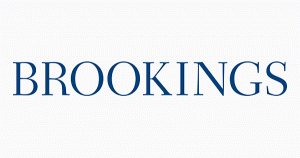Home
Use our global calendar of privacy events to locate an event near you.
FILTER BY
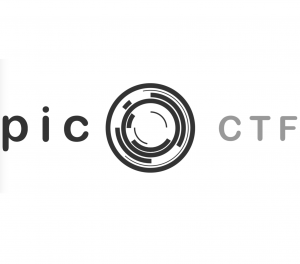
picoCTF – a free, online computer security competition for students grades 6-12 – is coming March 31, 2017! The game is designed for total beginners *and* experts alike, and over 30,000 people have already played. Students can pre-register today on our website (https://picoctf.com/). Please take a moment to watch our orientation video (https://picoctf.com/about).
Overview
picoCTF is a computer security competition open to students grades 6-12. The competition is a series of challenges where students must reverse engineer, break, hack, decrypt, or do whatever it takes to solve the problem. The competition is open from March 31st to April 14th, 2017. Everything is exclusively on the Internet and completely free. Registration will not close until the end of the competition, and there is no penalty for registering later.
Eligibility
Anyone can play, but only eligible individuals will be able to win and receive prizes. An individual is eligible if they are attending a school in the United States and are a 6th to 12th grade student.
Prizes
We have received over $30,000 for prizes this year! Specific amounts cannot be announced at this time as we are finalizing funding with our sponsors.
Competing
Once the competition begins, participants will be able to log into picoctf.com using the username and password provided at registration. If participants have forgotten their username or password, a reset function will be available once competition opens.
Organization
To accommodate the diverse backgrounds participating in picoCTF, the competition is organized into four levels each significantly more difficult than the last. Level 1 is targeted at students with no programming experience but apt at using a computer. Level 2 is for students with introductory programming experience, perhaps in languages such as Visual Basic or Alice. Level 3 targets AP Computer Science students with a stronger background in programming. Level 4 features a diverse set of problems ranging from difficult to mind-bogglingly difficult.
Levels
A team need not solve every challenge in a level before unlocking the next level. The problems in each level have been designed such that a new level can be unlocked even while avoiding entire categories (e.g. cryptography).
Playing the Game
Similar to the preview, competition challenges will be presented in the context of a story-driven game. The *game* requires a modern web browser and a reasonably powerful computer to play. Each challenge is worth a fixed number of points. A competitor earns the respective number of points regardless of the progress of other teams. Scores are calculated independent of time, but time will be used as a tie breaker.
Hints and Lectures
Some problems have associated hints. Hints can contain text, links, and even entire video lectures relevant to solving the problem.
Restrictions
While there are no limitations on the resources or tools that you can use, only students can solve challenges. Others can only facilitate in solving problems (e.g. helping setup tools and providing resources). Additionally, competitors may not interfere with the progress of other competitors or the competition infrastructure. Breaking any of these rules will result in disqualification and notification of the affiliated school.
Sponsors
We would like to thank our diamond sponsor, Cognizant, for helping make picoCTF possible.
Contact
Any questions should be directed to [email protected]. Or, if it’s easier, you can chat with us on Twitter or Facebook.

———————
For over thirty years has the ACM Symposium on Applied Computing been a primary gathering forum for applied computer scientists, computer engineers, software engineers, and application developers from around the world. SAC 2018 is sponsored by the ACM Special Interest Group on Applied Computing (SIGAPP www.acm.org/sigapp). Its proceedings are published by ACM; they are also available on the web through the ACM Digital Library www.acm.org/dl. More information about SAC 2018 can be found at www.sigapp.org/sac/sac2018/
The Privacy by Design in Pract
——————————
The aim of this track is to promote research on privacy-preserving technologies to be used in practice. “Privacy by Design” is a requirement in the new EU data protection regulation, which will be applied in the EU countries from May 2018. Thus, privacy needs to be considered by engineers from the beginning and built in to newly developed systems properly.
The track seeks submissions from academia, industry and public authorities (e.g. data protection agencies) presenting novel research on how to implement Privacy by Design i
Topics of the track include, but are not limited to:
– Privacy Engineering
– Privacy-enhancing Technologies
– Anonymization and Pseudonymization
– Privacy in the Internet of Things (e.g. Smart Home, Smart City, Connected Cars, Smart TV, Smart Grid, etc.)
– Privacy and Quantified Self
– Privacy Laws and their impacts on technology
– Conflict between Privacy and Security
Important Dates
———————-
September 15, 2017: Submission of regular papers and SRC research abstracts
November 10, 2017: Notification of paper and SRC acceptance/rejection
November 25, 2017: Camera-ready copies of accepted papers/SRC
December 10, 2017: Author registration due date
April 9 – 13, 2018: SAC 2018 in Pau, France
Track Program Chairs
—————————–
– Ronald Petrlic, Commissioner for Data Protection Baden-Württemberg
– Christoph Sorge, CISPA, Saarland University
Program Committee
—————————-
Claude Castelluccia, INRIA France
Tooska Dargahi, University of Rome Tor Vergata, Italy
Martin Degeling, CMU USA
Isao Echizen, National Institute of Informatics, Japan
Felix Gomez Marmol, Universidad de Murcia, Spain
Bart Knijnenburg, Clemson University, USA
Sebastian Pape, Goethe University Frankfurt, Germany
Andreas Reiter, TU Graz, Austria
Burkhard Schafer, University of Edinburgh, GB
Francesc Sebe Feixas, University of Lleida, Spain
Dirk Westhoff, University of Applied Sciences Offenburg, Germany
Submission Guidelines
——————————
The submission guidelines must be strictly followed for a paper to be considered.
Original papers from the above mentioned or other related areas will be considered. Only full papers about original and unpublished research are sought. Parallel submission to other conferences or other tracks of SAC 2018 is forbidden. Each paper must be BLIND in the sense that it must only include its title but not mention anything about its authors. Self-citation must be in third person, such as “Smith et al. [citation] showed…”. All submissions must be formatted using the ACM conference-specific LaTeX style, which can be obtained from the symposium web page. All papers must be submitted by the deadline stated above.
Papers must be submitted through the symposium-wide paper management system for SAC 2018 athttps://www.softconf.com/h/s
Review and publication of accepted papers
——————————
Each paper will be fully refereed and undergo a blind review process by at least three referees. Accepted papers will be published in the ACM SAC 2018 proceedings. Some papers may only be accepted as poster papers, and will be published as extended abstracts in the proceedings.
Student research abstract competition
——————————
Graduate students are invited to submit research abstracts at www.softconf.com/h/sac-src2
More information can be found at: www.legalinf.de/pbd2018
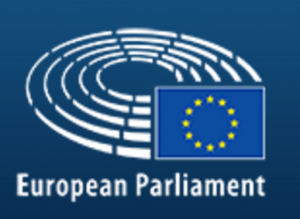
On 10 January 2017 the Commission has presented a proposal for a Regulation concerning the respect for private life and the protection of personal data in electronic communications and repealing Directive 2002/58/EC) (ePrivacy Regulation).
The ePrivacy Directive (2002/58/EC) set forth rules guaranteeing the protection of privacy in the electronic communications sector. It aimed to ensure that the protection of confidentiality of communications, in line with the fundamental right to the respect of private and family life enshrined in Article 7 of the EU Charter of Fundamental Rights, is guaranteed.
The proposed ePrivacy Regulation takes account of the important technological and economic developments in the electronic communication sector since the adoption of the ePrivacy Directive in 2002, where new services of interpersonal communications coexist in parallel with traditional communication services and presenting a similar impact on the privacy and the protection of personal data of individuals. These new services were not submitted to the protections of private life and data processing set out in Directive 2002/58 resulting therefore in a void of protection.
The proposal expands its scope to cover the new forms of electronic communications and ensure the same level of protection of individuals regardless the communication service used. It also update the current rules on the e-Privacy Directive 2002/58/EC to align with the new EU data protection legal framework established by the General Data Protection Regulation (EU) 2016/679. It takes account of experience gained over the years regarding cookies and other tools enabling tracking of individuals and seriously impacting on the private life and confidentiality of communications. Finally, it takes stock of the recent case law of the Court of Justice.
Similarly to the articulation between the ePrivacy Directive 2002/58/EC and the Directive 95/46/EC, the proposed ePrivacy Regulation particularises and complements the General Data Protection Regulation 2016/679. The rules of the ePrivacy Regulation should not lower the level of protection afforded by the General Data Protection Regulation.
The proposal would increase trust and security of digital services contributing to the achievement of the Digital Single Market Strategy.
This hearing addresses different elements of the new proposal in order to provide the European Parliament with the views of the main actors involved: telecommunications sector, new communication services provides (OTT), consumers, NGOs, professors, data protection authorities so as to obtain a broad and representative picture in view of the preparation of the LIBE Committee legislative report.
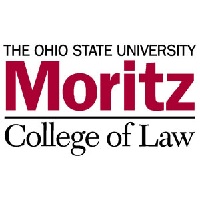
| Join the Program on Data and Governance on Tuesday, April 11, 2017, for a “Data Points: Ideas on Data, Law and Society” lecture series event featuring Dr. Lorrie Cranor, former chief technologist for the Federal Trade Commission and professor of computer science and engineering and public policy at Carnegie Mellon University. Dr. Cranor will deliver a talk on “Adventures in Usable Privacy and Security: From Empirical Studies to Public Policy.”
Why are usability studies important for security and privacy? How can researchers put study participants in realistic risky situations without actually putting them at risk? Why might it be counterproductive to mandate frequent password changes? And how are identity thieves able to hijack mobile phone accounts? Dr. Cranor will discuss the answers to these and other questions she has been exploring since she started her work as an academic usable security researcher and while she served as chief technologist at the FTC. |
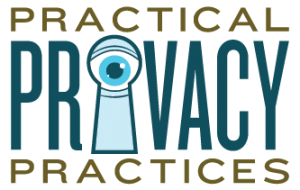
This webinar will highlight some actions that libraries can take to protect patron privacy in three important areas:
- How to configure and manage the integrated library system
- How to install free HTTPS certificates on your websites using Let’s Encrypt
- How to provide anonymous web browsing using TOR and other tools
Join us for this fast-paced presentation to get practical ideas on how to improve privacy at your library.

With cloud computing continuing to revolutionise the provision of IT services, and the promises and threats of the Internet of Things (IoT) growing by the day, legal and policy concerns surrounding technology are increasing salience and prominence. Existing and proposed regulatory and governance regimes place obligations on those who manage (process, analyse, use, and collect) data. The end-users of applications provisioned in the cloud and IoT also have certain rights that must be respected – various parties all bear varying degrees of responsibility, which must be properly managed.
Managing these rights and responsibilities is becoming increasingly complex, both technically and legally, particularly due to the emergence of new cloud services and models, as well as because of movements towards collaborative, decentralised and mobile clouds. For instance, the cloud will play an integral role in supporting the evolving IoT, which exacerbates issues of scale and data management while bringing real (physical) world considerations. The increasing prevalence of machine learning technology adds another degree of complexity.
Building on the successes of the previous workshops, CLaw 2017 aims to facilitate an interdisciplinary exploration of tech-legal challenges as regards emerging systems technologies.
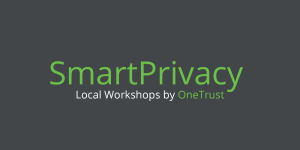
SmartPrivacy is a practitioner-focused, half day local workshop where privacy professionals can learn from each other about tools and best practices to operationalize their privacy programs.
The workshop is hosted by OneTrust, however is open to any privacy professional regardless of tool or template of choice.
A combination or structured educational sessions, peer-lead discussions, and networking allow organizations to share practical tips on topics such as GDPR compliance, how to perform a data inventory, identifying the key stakeholders/privacy champions within your organization, and how to get buy-in from executives.
Attendees can expect to receive access to free software tools, how-to guides, and best practices documents on the topics covered.
Workshop Agenda
12:00pm Lunch & Attendee Use Cases
12:30pm PIA/DPIA Workshop and Peer Panel
2:00pm Data Mapping Workshop and Peer Panel
3:30pm Topics of Interest and Discussion
4:30pm Networking and Cocktails
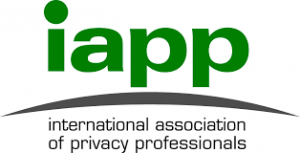
The Global Privacy Summit is the largest—and most anticipated—gathering of privacy and data protection professionals in the world. Each spring, the privacy community converges on Washington, DC, for world-class education, policy discussion and networking.


